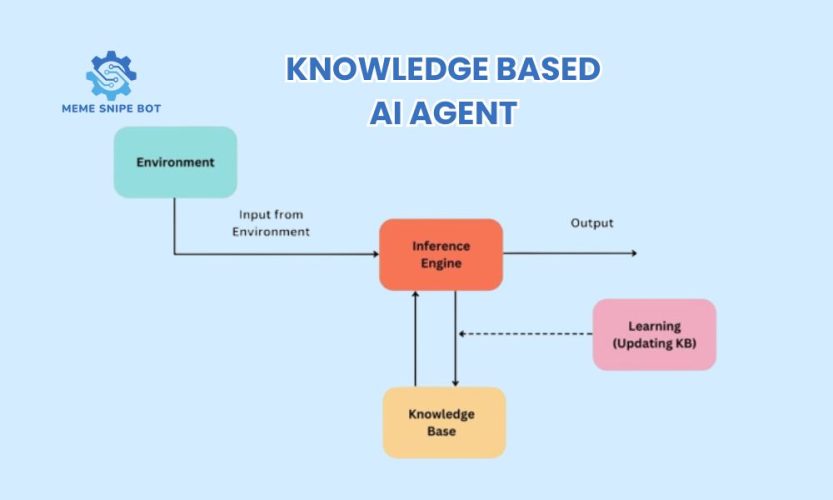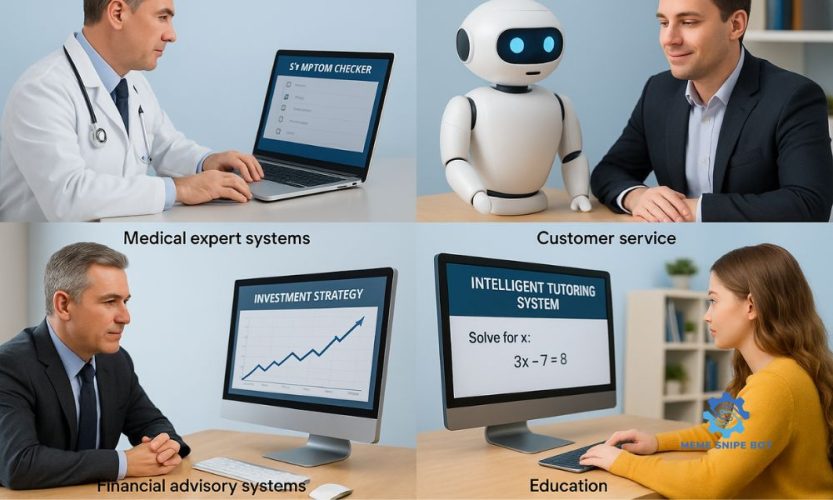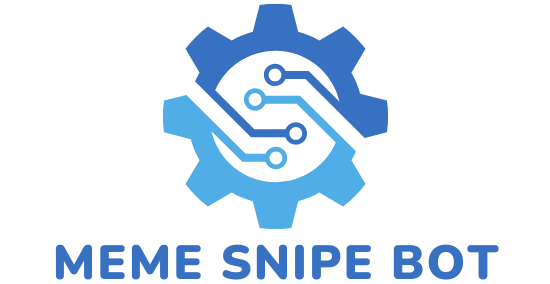A Knowledge Based AI agent is an intelligent entity that operates using an explicit knowledge base to make decisions and perform actions. Instead of solely learning from raw data, it utilizes pre-programmed rules, facts, and logic to reason like a human expert, creating highly explainable and trustworthy solutions for complex problems.
Contents
What is a Knowledge Based AI agent?
A Knowledge Based AI agent (abbreviated as KBA) is an autonomous agent that uses an internal knowledge base to perceive its environment and make rational decisions. Imagine it as an expert in a specific field. This expert not only has experience (data) but also possesses a library of books, rules, and formulas (the knowledge base). When faced with a new problem, they consult this wealth of knowledge, applying logic (the inference engine) to find the best answer.
The core difference of a Knowledge Based AI agent compared to other AI models is its transparency. While a neural network might give you a result but struggle to explain “why,” a KBA can trace back the exact rule in its knowledge base that was used to reach that conclusion.
The core components of a Knowledge Based AI agent

Based on its standard architecture, a Knowledge Based AI agent consists of indispensable components that work in harmony to create an intelligent system.
Knowledge Base (KB)
This is the “heart” of the KBA, analogous to the agent’s long-term memory or library. It contains all the necessary information about a specific domain. The data in the KB is not raw but is structured knowledge, typically in the form of:
Facts: Sentences that declare a truth. For example: “It is raining.”
Rules: IF-THEN statements used to deduce new information from known facts. For example: “IF it is raining, THEN the streets are wet.”
The richer and more accurate the knowledge base, the more intelligent and effective the AI agent will be.
Inference Engine
If the KB is the library, the inference engine is the “brain” that processes the information. Its job is to:
- Receive input (percepts) from the environment.
- Access the Knowledge Base (KB) to find relevant facts and rules.
- Apply logical rules to the facts to infer new knowledge or decide on a course of action.
This engine uses reasoning techniques like forward chaining or backward chaining to achieve its goals.
Learning Component
An advanced Knowledge Based AI agent isn’t limited to a static knowledge base. It has the capacity to learn and update itself. The learning component allows the agent to:
- Acquire new knowledge from the environment or from the outcomes of its previous actions.
- Update, add, or modify the facts and rules within the Knowledge Base.
This process helps the agent become smarter over time, adapt better to environmental changes, and improve its performance.
How it works
The workflow of a Knowledge Based AI agent follows a logical cycle:
- Perception: The agent receives information from the external environment through its sensors. For example, a chatbot receives a question from a user.
- Inference: The inference engine takes this information and begins to query the Knowledge Base. It looks for rules that match the current situation.
- Action: Based on the result of the inference, the agent decides on a specific action and executes it through its actuators. For example, the chatbot provides an answer to the user.
- Learning: The outcome of the action and any new information can be used to update the Knowledge Base, helping the system perform better in the future.
Real-world applications

Thanks to their explainability and high reliability, the Knowledge Based AI agent is widely used in fields that demand precision and logic, such as:
Medical expert systems: Assisting doctors in diagnosing diseases based on symptoms (e.g., the famous MYCIN system).
Customer service: Chatbots that answer questions based on a knowledge repository of products/services.
Financial advisory systems: Providing investment advice based on market rules and a client’s risk profile.
Education: Intelligent tutoring systems that customize lessons based on a student’s level of understanding.
In summary, the Knowledge Based AI agent is a crucial pillar of artificial intelligence, offering logical and transparent reasoning. By combining a rich knowledge base with a powerful inference engine, it creates intelligent and reliable solutions. Follow Meme Snipe Bot for more interesting insights into technology and artificial intelligence.
